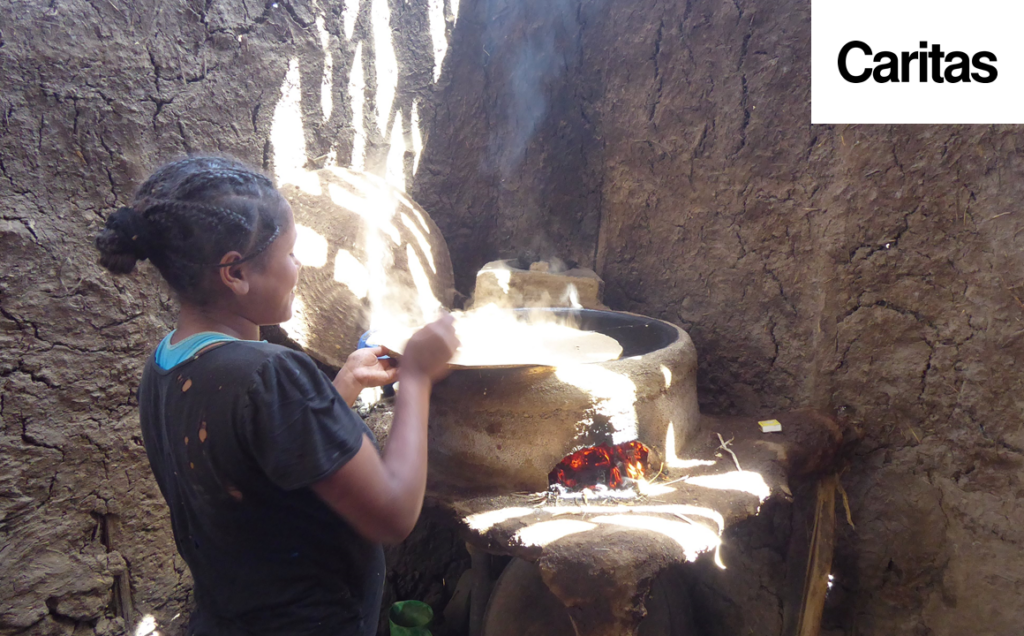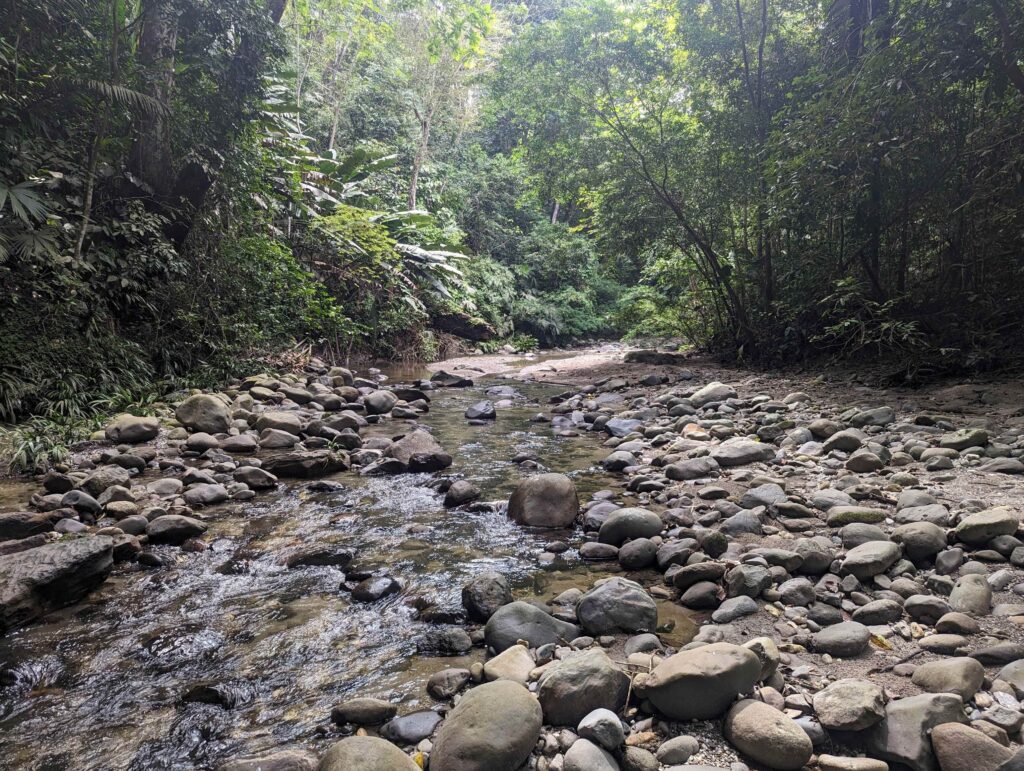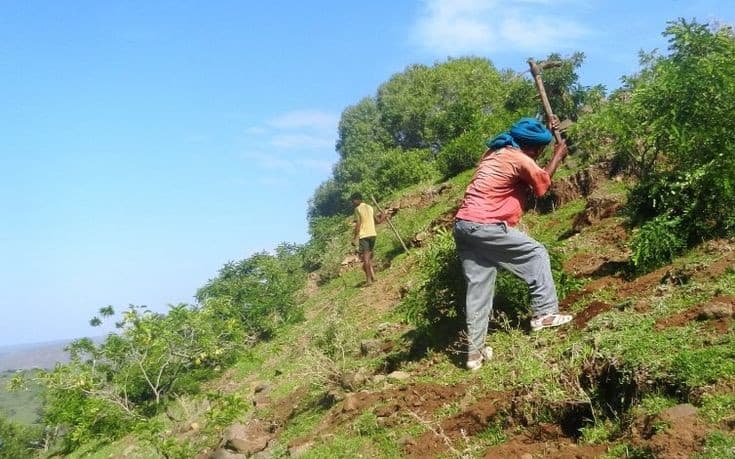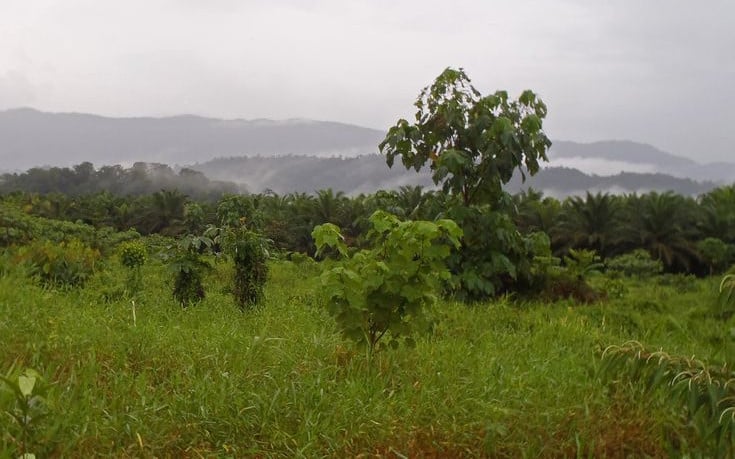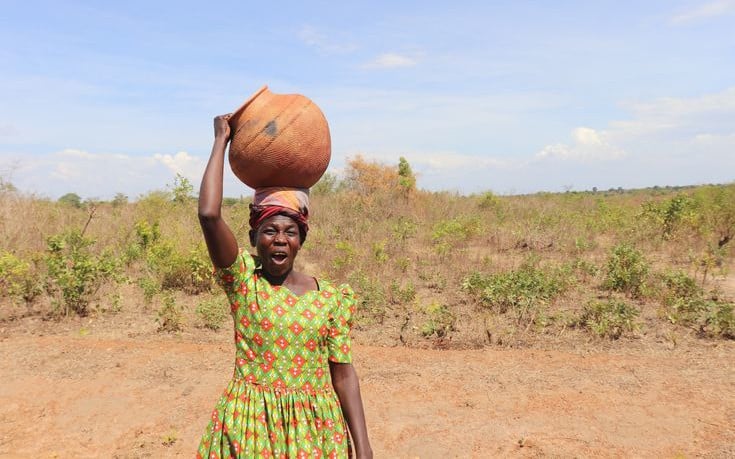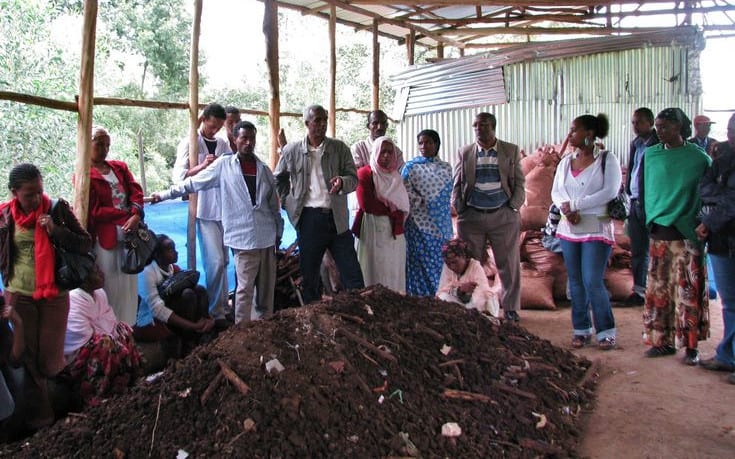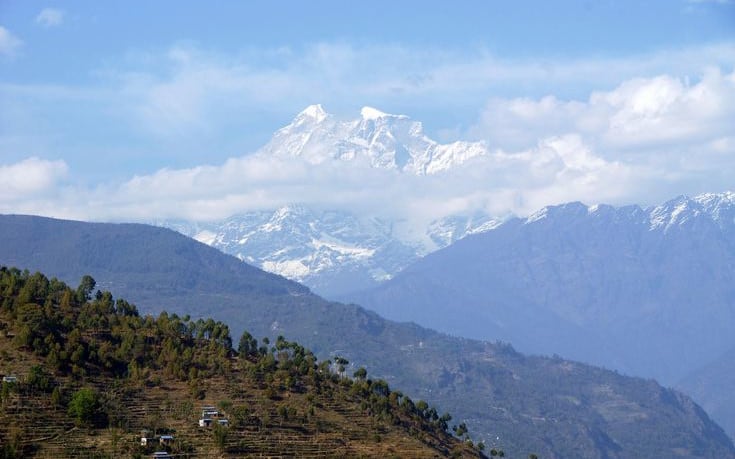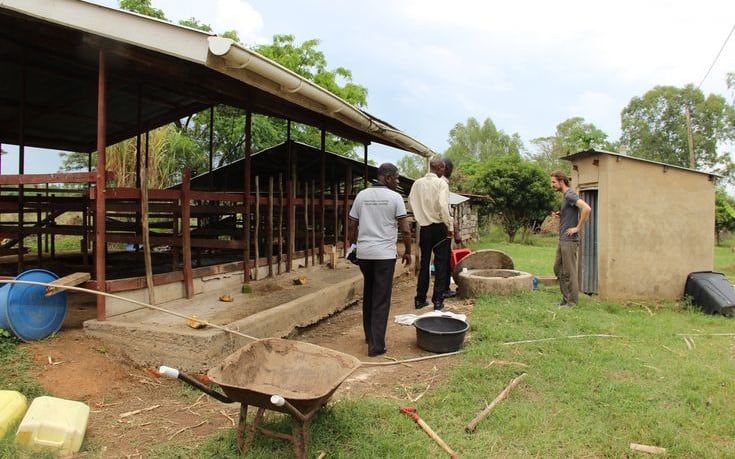Klimaschutzprojekt BOKU x Caritas
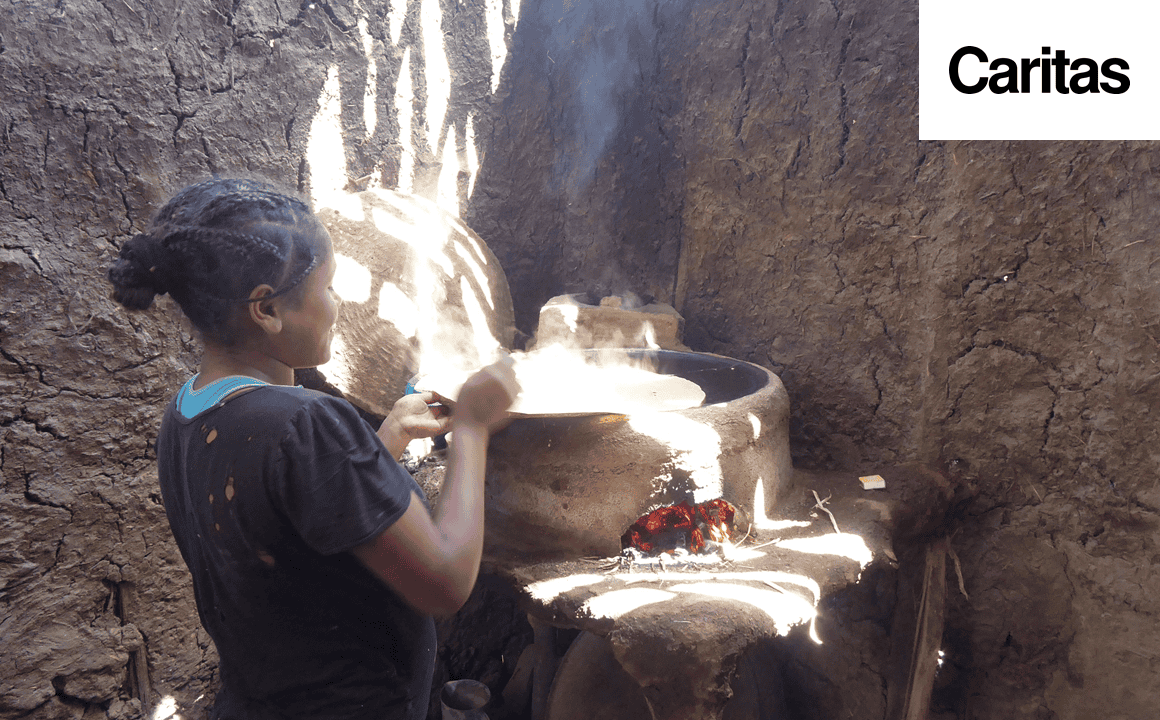
Efficient Cookstoves to Combat Deforestation, Disease
and Inequality
Three billion people in rural areas of developing countries rely on biomass, often without access to efficient cooking facilities. This contributes to poverty, disease, and inequality. Every year, more than one billion tons of biomass are used worldwide, primarily for traditional cooking and heating. In Ethiopia, over 90% of energy comes from biomass, with 98% of rural households relying on firewood and charcoal. The high demand leads to deforestation in many African regions. A project to reduce firewood consumption lowers wood demand and CO₂ emissions. The predecessor project, GREEN-RE, saved over 29,000 tons of CO₂ in five years.
Diverse Contribution to Sustainable Development
On-Site
The project contributes to sustainable development on-site in various ways. Specifically, it generates "co-benefits" related to Sustainable Development Goals (SDGs) 1, 5, 8, 12, 13, 15, and 17. For example, providing energy-efficient cookstoves to a total of 5,750 households raises environmental awareness among the population, saves costs and time spent searching for firewood, and reduces health risks. Additionally, promoting sustainable agricultural practices helps reduce biodiversity loss and ensures the long-term use of natural resources.
maintain soil fertility, and improve food security.
To achieve this, methods such as permaculture, composting, crop rotation, intercropping, and other locally accepted sustainable farming practices are applied.
Distribution of Efficient Cookstoves / Ethiopia
expected emissions reduction> 25.000t CO2- over 5,5 years
Project Duration01.01.2025 - 30.06.2030
Project Costs850.000,- Euro
Costs per Tonne of CO234 Euro
Situation without the ProjectThree billion people rely on biomass, which exacerbates poverty and deforestation. In Ethiopia, over 90% of energy comes from biomass, leading to rising CO₂ emissions.
Goal The project promotes sustainable land management to use natural resources efficiently and establish climate-friendly practices. At the same time, it supports rural households by diversifying sustainable income sources to improve their livelihoods by 2030.
Project Developers & Partners• Caritas of the Diocese of
Feldkirch, International Aid
section
• Caritas Meki
• University of Natural
Resources and Life Sciences
Vienna (BOKU)
Supporting ResearchThe research focuses not only on methodology but also on gender differences in climate adaptation, the impact of sustainable agriculture on community change, and social innovations.
Further Projects

